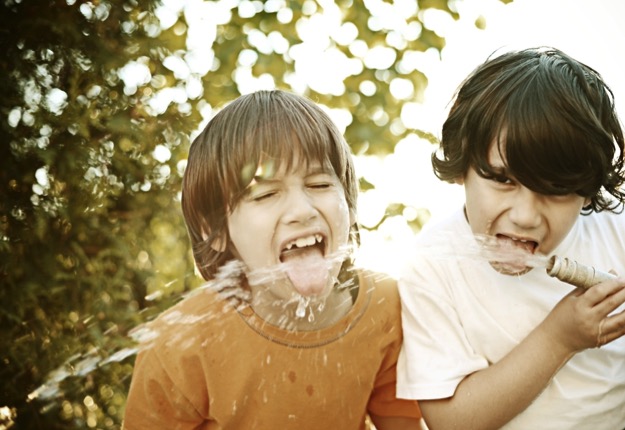Dehydration is a significant health issue in children and can occur frequently as a result of hot and dry temperatures, intense physical playground activity and a lack of fluid intake.
How it can affect your child
Studies have shown that children are often arriving at school with a hydration deficit and not drinking enough fluid throughout the day to maintain adequate hydration (1).
This can affect their performance and lead to:
- Lower cognitive and physical performance
- Increased feelings of aggression and irritation
Mild dehydration (2-3% body weight loss through sweat) can significantly impair your child’s concentration at school and impact the following:
- Short term and long term memory and retrieval
- Attention span and alertness span
- Language skills (both written and verbal)
Research has found that hydrated students often perform better on verbal tasks, compared to children that were dehydrated (2).
Factors that affect how much your child sweats
Children can sweat up to 400 ml per hour, making them prone to a hydration deficit.
Furthermore, children’s thermoregulatory systems are less effective than adults, meaning that dehydration is accompanied by a faster core temperature increase compared to adults (3).
The following factors can also affect your child’s hydration status:
- Type and intensity of sport – sport affects the amount of heat the body produces and consequently the core temperature and fluid loss through sweat.
- Body size – children have a smaller mass to surface area ratio and therefore lose fluid through sweat more rapidly than adults. This puts them at a higher risk of dehydration (4).
- Clothing – the type of clothing affects the quantity of sweat produced and evaporative capacity.
- Environmental conditions – hot and humid weather increases sweat rates.
- Heat acclimatisation and fitness level – at the start of the school year or sporting season when children have a sudden increase in activity levels, they may be at particular risk of dehydration due to a lack of acclimatization (5).
How much fluid does your child need? (6)
- Children 1-3 years – require 1 litre
- Children 4-8 years – require 1.2 litres
- Girls 9-13 years – require 1.4 litres
- Boys 9-13 years – require 1.6 litres
- Girls 14-18 years – require 1.6 litres
- Boys 14-18 years – require 1.9 litres
Kids and thirst
Don’t rely on your child to realise they’re thirsty – they may not!
Children may be at risk of dehydration because they don’t often respond to the early stages of thirst.
During exercise, kids (compared to adults) may not recognise the need to replace lost fluids and are less likely to drink according to thirst.
Top tips for staying hydrated
- Ensure children are offered regular access to fresh clean water.
- Children are more likely to drink water when it is chilled – freeze the bottom quarter of you child’s water bottle overnight and fill before school
- Keep children cool and in the shade as much as possible
On hot days
- Avoid giving your child any sugary drinks/ice blocks.
- Pack Hydralyte mini bottles in your child’s lunchbox, or have another small water bottle half frozen in the lunch box.
- Pick up children from school with Hydralyte ice blocks to have in the car on the way home to cool them down.
Do your kids come home with an empty drink bottle from school? Are they getting enough fluid during the day?




















10:50 pm
5:23 am
5:58 pm
6:10 am
10:49 am
10:32 pm
9:42 pm
7:17 pm
9:12 pm
1:40 pm
2:18 pm
11:08 pm
8:52 pm
12:56 am
7:51 pm
2:34 pm
1:58 pm
12:16 pm
11:55 am
10:08 am
- 1
- 2
- »
Post a commentTo post a review/comment please join us or login so we can allocate your points.